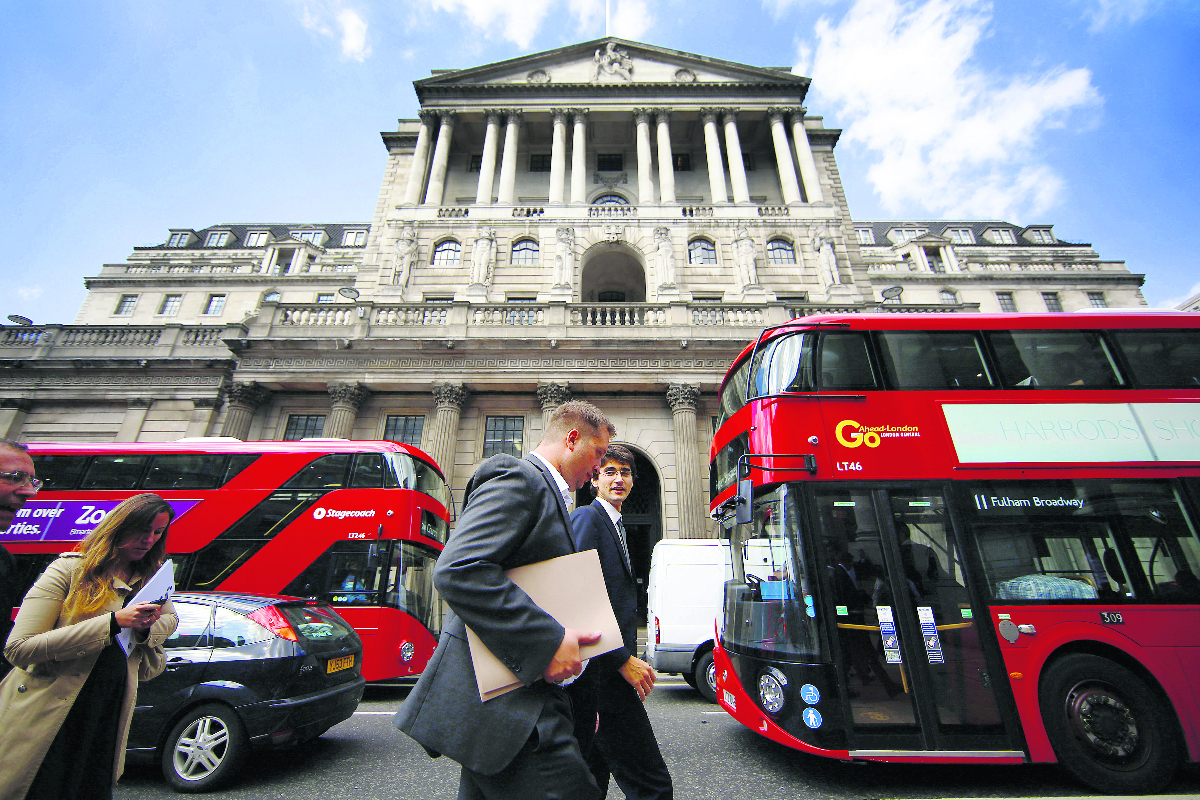Thursday 06 November 2025 3:37 pm
| Updated:
Thursday 06 November 2025 3:38 pm
Share
Facebook Share on Facebook
X Share on Twitter
LinkedIn Share on LinkedIn
WhatsApp Share on WhatsApp
Email Share on Email
 The Bank of England is having to take a view on high inflation expectations.
The Bank of England is having to take a view on high inflation expectations.
Firms’ long-term inflation fears are at their highest level since the end of 2023, a Bank of England survey revealed on Thursday, prompting the majority of Monetary Policy Committee (MPC) members to vote for interest rates to be held.
On an average reading in the three months to October, business leaders’ inflation expectations for the next three years crept up to their highest level.
One-year ahead expectations also failed to ease in further signs that firms are nervous about stubbornly high price growth for the foreseeable future.
The Bank’s monthly survey, which is called the “Decision Makers’ Panel”, uncovered the reason behind the latest MPC vote for interest rates to be held at four per cent.
While some policymakers said a rise in unemployment and fall in vacancies across the UK economy allowed for monetary policy to be loosened, others said risks around price-setting behaviours meant interest rates had to remain high to squeeze out inflationary pressures.
The survey also indicated that business chiefs believed interest rates would drop to around 3.5 per cent in 12 months.
Bank of England Governor Andrew Bailey said at a press conference on Thursday he would wait for further evidence that inflation was coming below Bank forecasts in order to vote for another cut.
His vote was seen as being more dovish and opening up the possibility of a rate cut in December.
“We’ve had one inflation reading that has come under our projection,” Bailey said.
Read more
Andrew Bailey: Bank of England Governor to have ‘deciding vote’ on interest rates
“It does suggest that we have reached the peak. But we really need to see more than one number.”
Inflation pressures due to Reeves
The survey also suggested that a large proportion of firms still planned to raise prices and cut staff in response to Rachel Reeves’ £25bn tax raid on employers’ national insurance contributions (NICs) last year.
It came despite a comment in the Bank’s monetary policy report stating that costs of higher payroll budgets from the tax hike had already been “passed through”.
A slightly higher percentage of firms (43 per cent) said they would lower the number of employees due to the NICs raid compared to September. More than a third (38 per cent) said they were planning to raise prices.
Analysts said higher inflation expectations among Brits should send a warning to policymakers looking to cut interest rates at the next MPC meeting.
“This urges some caution in rushing to lower rates,” Ellie Henderson, an economist at Investec, said.
“By the time of the December meeting there will be far more evidence on which to base a decision. We will have two more CPI inflation reports, which should confirm that the peak in inflation is behind us, as well as clarity on the fiscal situation.
“We suspect that the measures announced on 26 November will cause a disinflationary impulse, but until we know that for sure, we are also minded to wait-and-see before altering our rate path.”
Read more
Bosses’ inflation expectations highest in two years amid employment freeze
Similarly tagged content:
Sections
Categories
People & Organisations

